|
Nothing never ends the way I imagine it: paintings, stories, plays. And that's the fun of it all--the discovery. What you see and learn along the way about the world and yourself and your place in the world. If that doesn't happen, I get bored and stop. (It's the reason I quit acting and starting writing plays and making theater instead; I stopped learning about the world and myself from acting.) I had an idea for this painting and started it and the painting pretty much said, nope, I don't want to do that, I want to do this. It is exactly like listening to the characters as you write a story. And you can pretty much hear the clunking sound every time when a writer inflicts themselves into the story, where everything goes flat and you're removed from the world of the story. By listening to your painting you become a better painter. With the painting there is a teacher/student relationship. Don't ever think you know more about painting than the painting. And if I could explain it in all words I wouldn't have painted it.
0 Comments
From the galleries' site: "This exhibition is an open call for postcard-sized responses to the COVID-19 pandemic. All submissions will be included in the exhibition and become part of the Wheaton College Permanent Collection. The exhibition is an effort to combat the social isolation this virus has forced on us. It is a chance to see, through the eyes of another, an expression of this experience. It is an opportunity to come together when we still have to remain physically apart." I was fortunate to be invited to submit to this show. They requested pieces no bigger than 5" x 7" (postcards!) of the work you've been doing during the pandemic. The postcards will become part of Wheaton College's permanent collection. While the exhibition emphasizes the results, the expressions, of artists' response to the pandemic, for me the process of getting there was just as important. At the start of the pandemic and the subsequent quarantine I, like many people I know, were able to look ahead and see that for scientific and political reasons, what was just beginning would be with us for a very long time. With that understanding I settled in for the long haul and took the opportunity to begin something that I had been dreaming of doing for quite a while: Go back into the studio (though in my case the studio is a table in the sun on my porch during good weather, or my kitchen table lined with old cardboard when it's not.) I will admit that for years I was frozen by a very silly but real fear of failure from attempting this, but the pandemic with its sights set directly on our mortality quickly overrode my fear. It was now or never. If ever I were to start drawing and painting--no! check that, for it was the classical definitions of drawing and painting and art that had frightened and deterred me as much as the embarrassment I thought I'd feel from friends who are very accomplished artists-- if I were going to start making art pieces--what I define as something that didn't exist yesterday--then now was the time to do it. I've always defined myself as a writer and an artist, and being an artist I would then say, I am an artist who primarily makes images (photography) or I am an artist who works in the theater. But the artist part always came first. I'm seeing on Facebook that a lot of my peers in the theater seem to be suffering more than others during the disturbances brought on by the pandemic because theater is all they know how to do. They write, it--acting, directing, scenic design, whatever the discipline--is something they trained their whole life for and now that the theaters are shut down they don't know what to do. As much as I love theater--and I do love it deeply and I did study it and paid a lot of money to a university to learn about it and devoted a lot of my life to it--the artist in me always found it restrictive because, if you were a playwright like I am, you really are not only not expected to be able to design a set, you're pretty much denied it. With any other artistic pursuit there's not just the expectation but almost a requirement that you'll explore other mediums. When funding for my theater went away, admittedly I was disappointed at first, but then shrugged and figured out something else to do. You really can't keep a creative person down; they will always find an outlet. As much as I love making theater, and as much as I love making images, right now I'm loving smearing and scratching and spreading paint. Like Hemingway tried to write one perfect sentence in a day, right now I'm just trying to make one perfect mark. You can love all of your children, you don't have to have a favorite. I'm not going to get into the steps of how I reentered the studio, how I replicated my old palette, bought former favorite art supplies like an enamel butcher pan or a collection of palette knives whose handles are already getting worn and paint-spattered. What became most important to me was suddenly how free I felt to do whatever I wanted, regardless of what the established art community might think. Don't even ask me what the "established art community" is or who composes it. I imagine in my mind they're all the gallerists and curators who'll I'll bump heads with later when I try to exhibit or sell some of this stuff. I used, and continue to use, tools I dug out of my toolbox like plumb lines, squares, and carpentry pencils. Right now some favorite tools are scrapers for stenciling I found on a pegboard in the painting department of a Home Depot. I use an old mat knife to scrape children's blackboard chalk to make dust, and transfer paper, i.e. good old-fashioned carbon paper. In other words I'll use anything or do anything to get marks on paper (and while today it's paper, who knows what it might be tomorrow!) I addressed and continue to address whatever is in front of me. A loved one. A favorite painting (can you spot the Hockney somewhere on this site?) The pandemic. And while I'm still taking baby steps, I'm growing every day, developing a painting language and an eye and through that growth I'm still very much aware that I'm alive, which is a good thing to be during a pandemic. Here are the pieces I submitted: How long did it take you to make it? It looks like something my sixth-grader could do. (Well, at least it's not his three-year-old; that's a step up.) It took weeks. Not weeks of hands-on work, but weeks of thinking, staring, dreaming about it in my sleep. So, I guess you could say, Welcome to my nightmare? No, not really a nightmare at all, but actually a very good memory. The impetus for this piece: I was at college and it was a beautiful spring day in southern Ohio and I was young and my life was ahead of me and I was hanging out with my roommates and friends. It's the time passing, and it's the now, that makes me do what I do; what makes the painting do what it does. You just have to listen and hear and look and see. What does the painting want you to do? And what I hope is that the viewer can see quickly what took me such a long time so see.
Continual work on this singular idea. And I like what I'm seeing. If you like what you're doing, if you like what's happening in front of your eyes, enjoy it. Now is not the time to wonder if anyone else will like it, if it's saleable, what will a gallery think, how much would someone pay for it, or if it fits anywhere in the "canon of American art"? Now is the time to simply give in to your artistic instincts. Have some fun, but it's more than fun; it's using your given talents to do something that you not only enjoy but, well, not everybody will think so, but you think what you're doing is good. That's the best feeling in the world. Once I was a residency and all of these writers were discussing who they thought was a good person to critique their work. (To be fair, they all had just graduated from some pretty prestigious, expensive schools so they didn't know anything else but someone telling them if they were any good or not.) And I'll tell you: An artist might have some trusted friends or peers to give them an opinion, but in the end it's the artist who is in the best position to know if their own work is any good. At the very least, you get a good night's sleep out of it, not tossing and turning, being kept awake by your art demons.
The pandemic gave me the chance to pick up brush and paint again, something I had been longing to do but just couldn't work that into my life, and right now I'm still working small, I think the way our psyches work small, why we aren't born bigger than we are. There are the everyday forces of painting at play. Start small, baby steps, learn to control this size, then you grow. That's what's happening with my painting. One idea is leading to the next, and it's making me happy. I have to say, spreading the paint on the board was very sensual. I'm enjoying working on this painting simply because it feels so good. It was a working title, I've since jettisoned it, because it's how I'm exploring memory. What does memory look like? But it's something in my head. I'm making marks with carpentry tools. T-squares and carpenter pencils. On a bigger piece I'll use a blue line; I'm anxious to see the chalk wisp along the line. I'm making lines like a child who thinks what he's doing is so important, so grand, but isn't. That's how I see America being made better right now. I like seeing lines dissolve, fade, into dust. Even real dust from pastels.
I love process. I love reading about other artists' process. How did you do that? Today I read about an artist who just won a big prize who fills maybe three sketchbooks before she starts a painting. But then the painting doesn't change. I'm not so capable. Today, I tore three pages out of a sketchbook, and then took a nap. When I woke, I filled the three. That's all. The last three above. The ones with color. I want to learn how I feel about these lines. I want to understand what they are capable of doing. In the garden, as in how intimately you learn about each garden you make each year. Every garden is different, and as the seasons go on (it feels like fall today) I wonder how much time will I have left? Answer: That plot of land will be there in December. But as I have finally mustered the courage to pick up a paint brush again, my sense of color quickly changed, and it changed how I use a camera.
Today at the doctor's the PA said, you'll need about three or four months to recover; that's not really a lot of time, and I replied, yes it is. Someone died the other day--they were 71, and I thought, that's six years away for me. Imagine if you were told you were going to prison for six years. Imagine you were told you only had six more years to live. Covid-19, for me, made time very important. Now it might be two years before I can visit the Musee de Cluny again. See Barcelona. See Chaco. Hike the West Highland Way. And in those two years, who knows what may happen...to me...to things. For a claustrophobic, when your world locks down, when it closes in, in any way, it affects you. It affects your breathing. Three months ago, when Covid-19 became a real thing and anyone who had paid the least bit of attention in high school science class knew exactly what we were in for, the first thing I thought to jettison was achievement. Suddenly, my ego-driven desire for attention didn't seem all that important. I actually unfriended a bunch of people on Facebook who, truth be told, I was simply trying to impress. Suddenly, the idea of trying to impress some white, male, millennial with an intentionally bad haircut just to promote my images seemed awfully embarrassing. With Covid -19 we couldn't not only travel internationally, going to the grocery store became a major excursion. (Frankly, it still is; see above about high school science class.) Then I lost my passport and my knee flared up and wow, my world got really small. My world narrowed all the way down to my backyard vegetable garden. That was pretty much the only place I consistently go, and even then I'm like Christina's World, I hobble back there and then crawl around with my camera. But that narrowing and slowing down didn't go unnoticed. And that's where I am. My world got really small... Yesterday I made one image. One image I really liked. It made me happy to do it, and that was fine with me. It made me happy unlike the rejections I get when 800 people send in five images and mine wasn't one of the 4,000 the curator had to choose from. (How fucking ridiculous is that?) Or it made me happy, unlike the feeling I get when only five people give one of those hearts on IG. (How fucking pathetic is that?) So for now, if anyone wants me, I'll be out back, crawling around with a DSLR with a 35 mm lens attached--a lens that I used to use all the time but for some reason traded it in for a 70 - 100 mm zoom--and sometimes a flash. And if I can make one good image, the day is pretty good. That's how small my world has gotten. |
Author
John Greiner-Ferris is a politically motivated, multi-disciplinary artist in the Boston area. Sometimes he makes images. Sometimes he writes. Sometimes he does both. Archives
May 2024
Categories
All
|
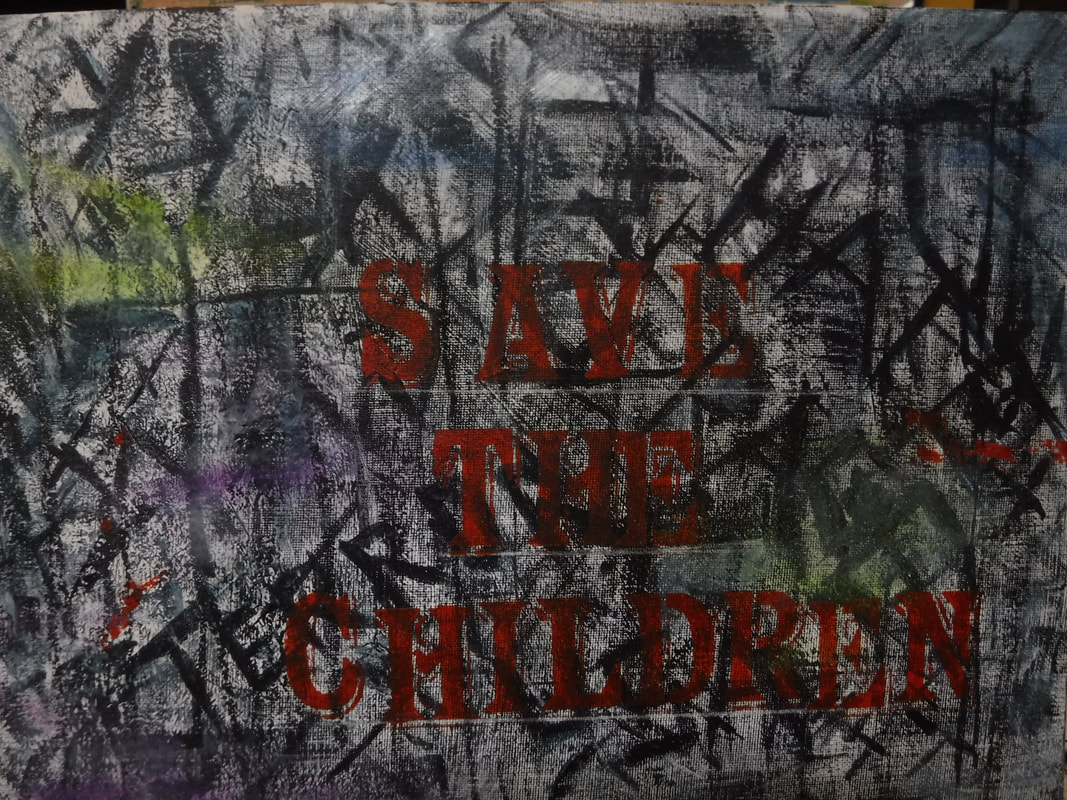
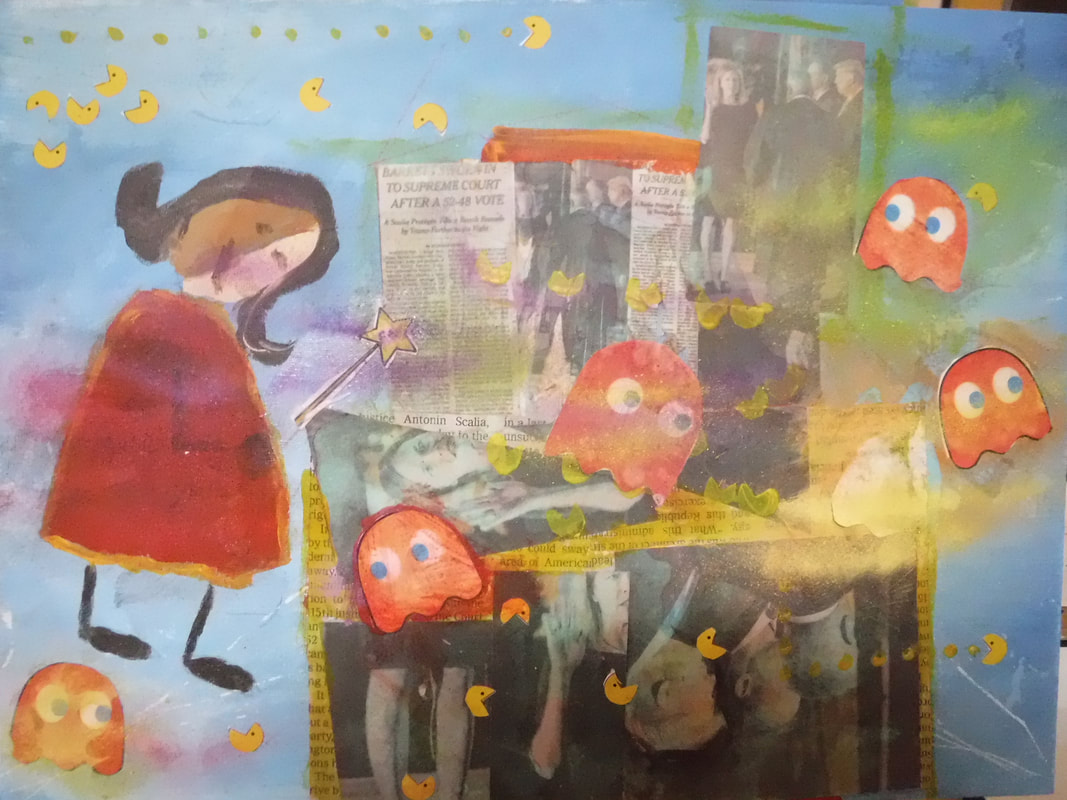
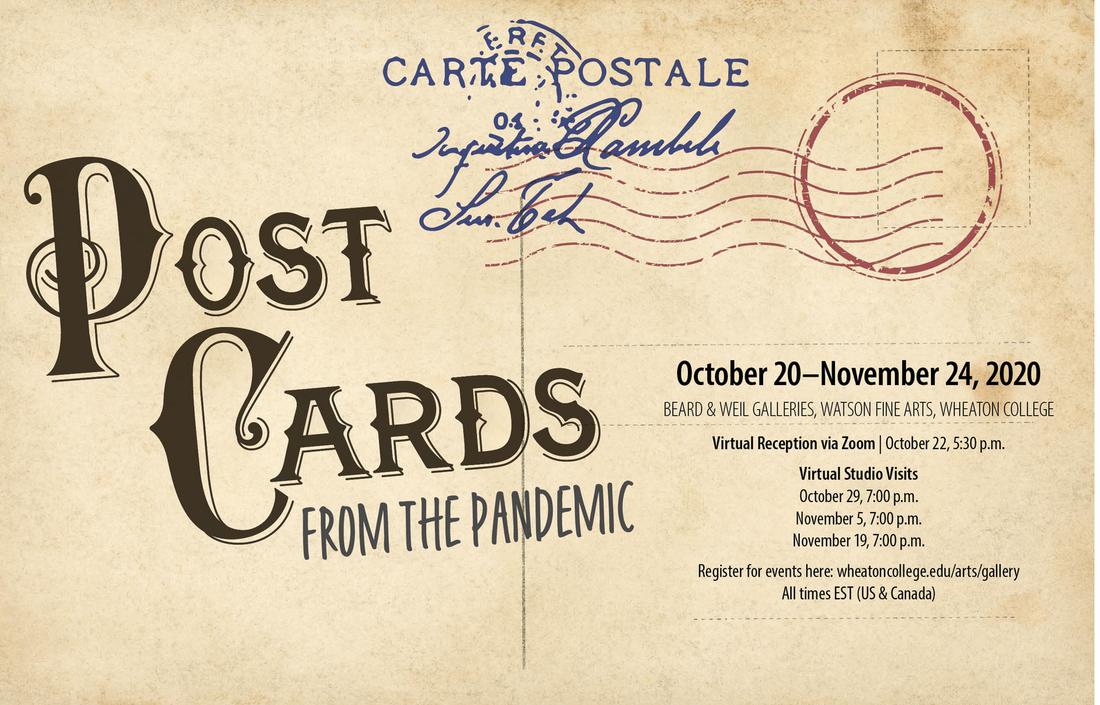
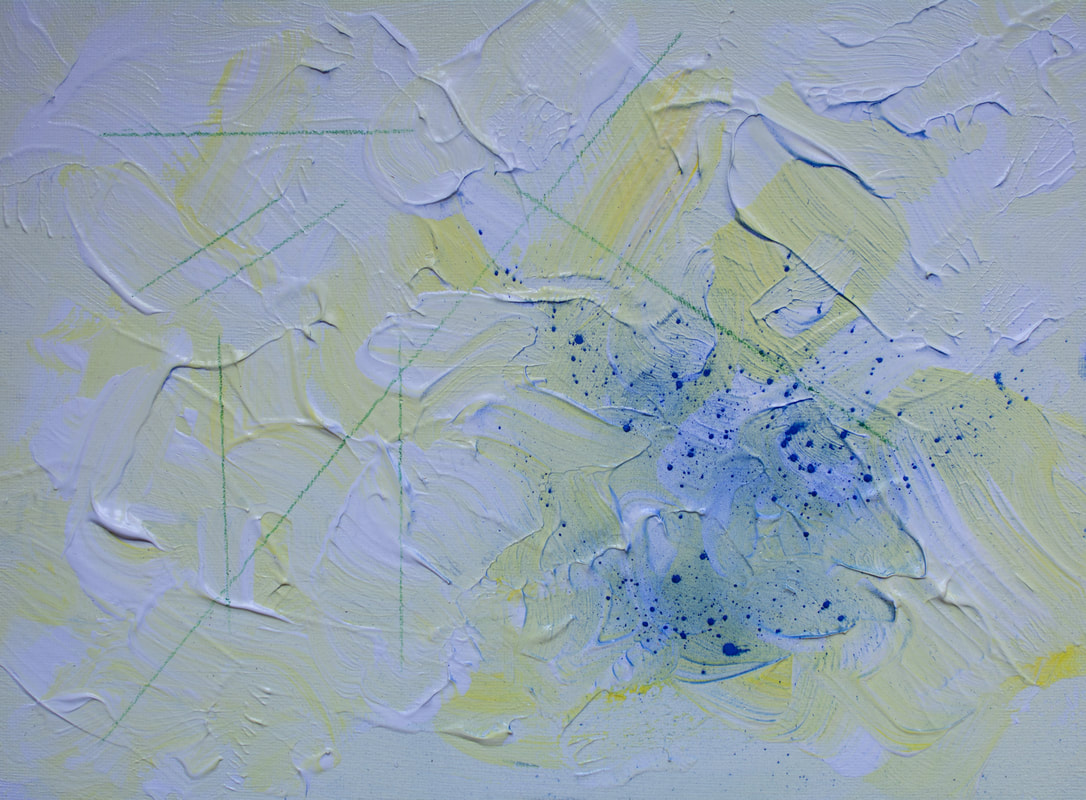
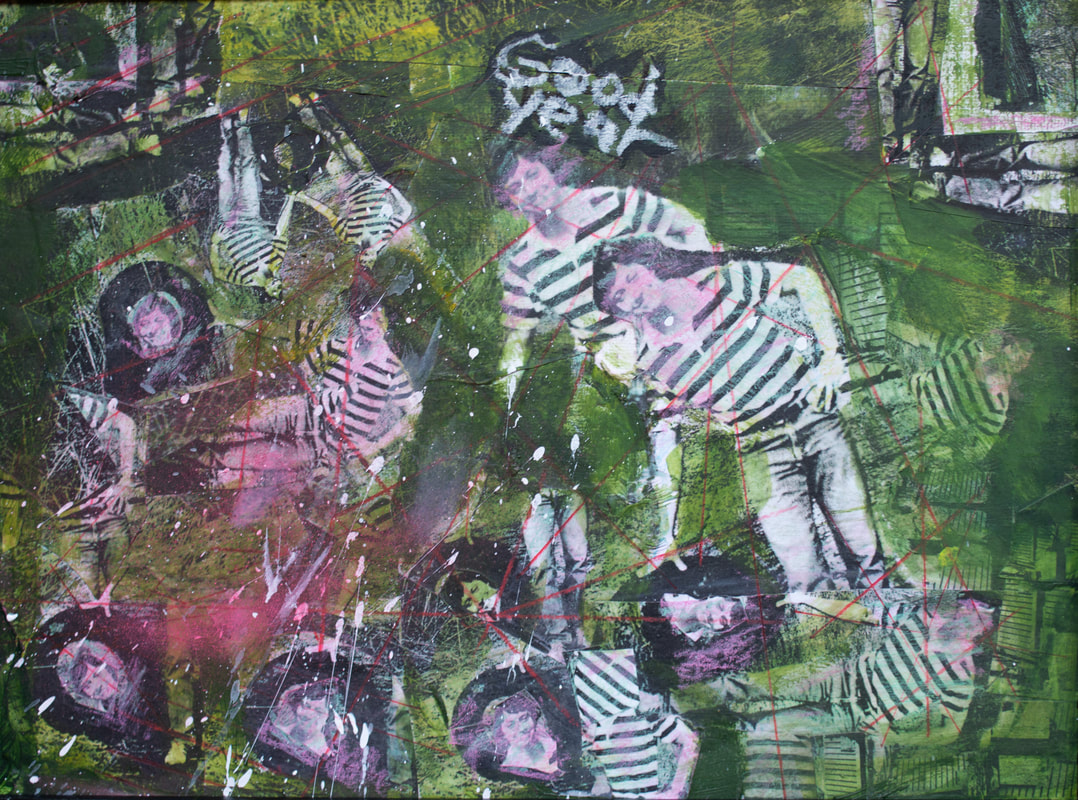
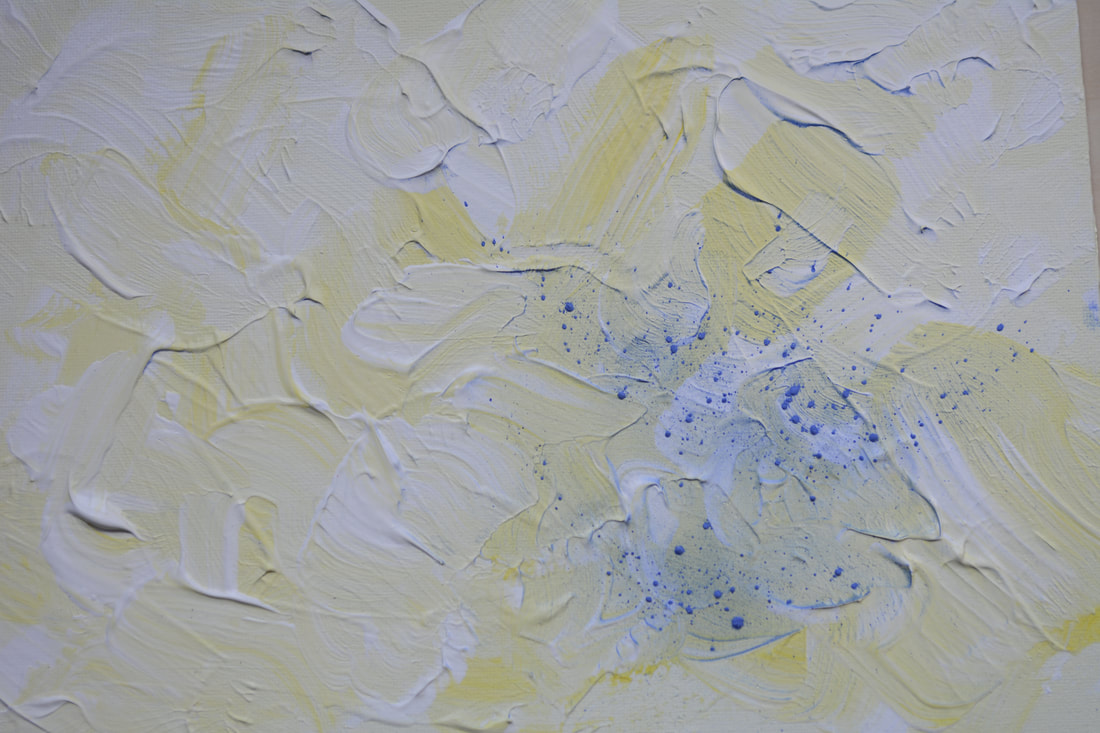
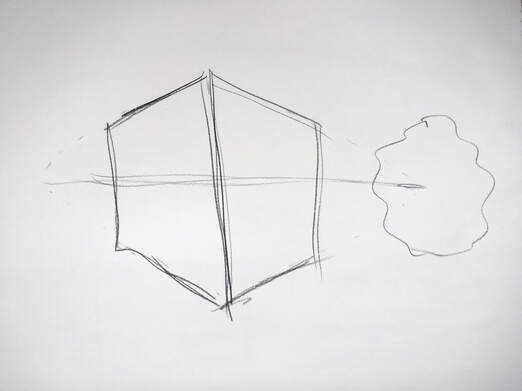
 RSS Feed
RSS Feed
